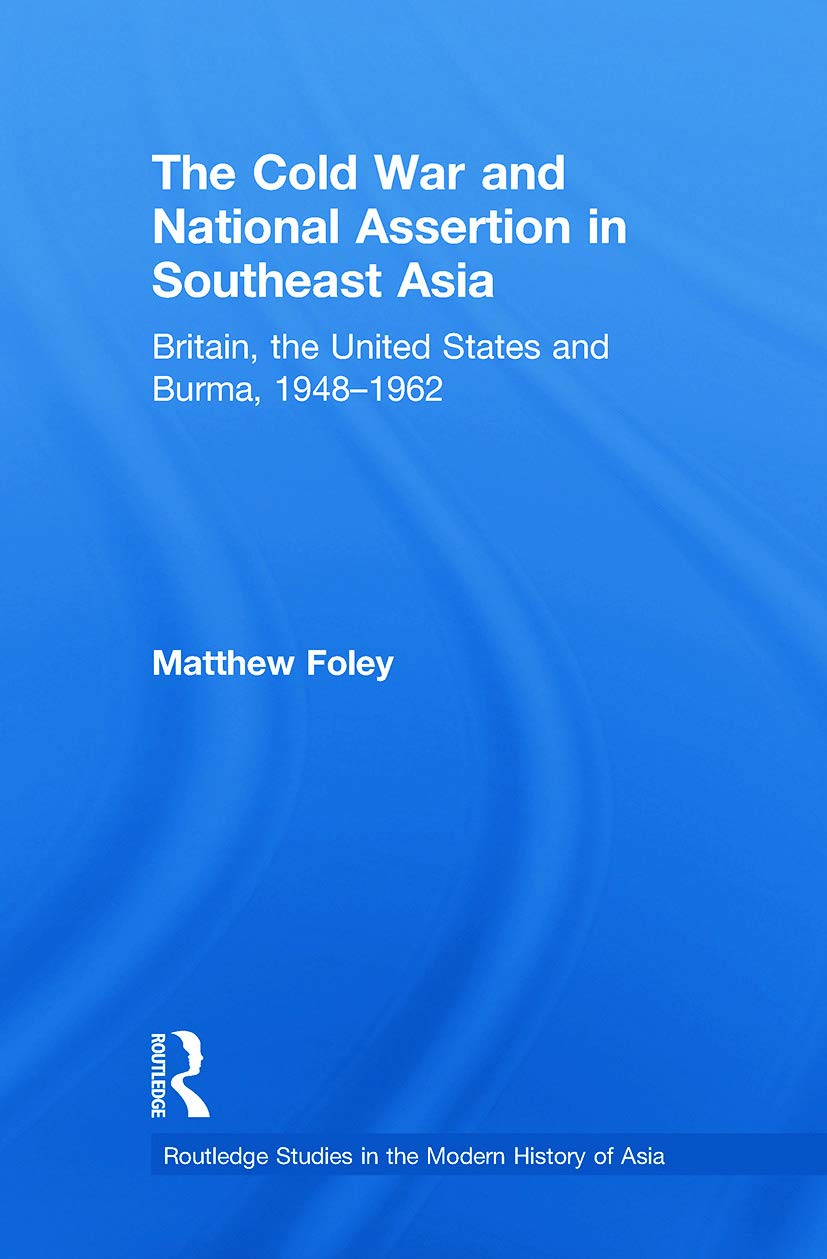The Cold War and National Assertion in Southeast Asia: Britain, the United States and Burma, 1948–1962 (Routledge Studies in the Modern History of Asia)
The Cold War and National Assertion in Southeast Asia: Britain, the United States and Burma, 1948–1962 (Routledge Studies in the Modern History of Asia) is backordered and will ship as soon as it is back in stock.
Couldn't load pickup availability
Genuine Products Guarantee
Genuine Products Guarantee
We guarantee 100% genuine products, and if proven otherwise, we will compensate you with 10 times the product's cost.
Delivery and Shipping
Delivery and Shipping
Products are generally ready for dispatch within 1 day and typically reach you in 3 to 5 days.
Book Details:
-
Author: Matthew Foley
-
Brand: Routledge
-
Edition: 1
-
Binding: Paperback
-
Number of Pages: 240
-
Release Date: 29-03-2012
-
EAN: 9780415627498
-
Languages: English
-
Package Dimensions: 9.1 x 6.1 x 0.8 inches
About The Book:
This book provides a thorough analysis of British and American approaches to Burma (Myanmar) from the country’s independence in 1948 to the military coup in 1962 that ended civilian government. It explores the political, strategic, and ideological drivers that shaped Anglo-American policy during this critical period.
Key Themes:
-
Post-Colonial Transitions: The book focuses on the process of decolonization in Southeast Asia, particularly the withdrawal of European colonial powers and the simultaneous rise of U.S. influence in the region.
-
Cold War Context: The period covered is set against the backdrop of the early Cold War, with the emerging tensions between the United States and the Soviet Union influencing Western policies in Asia.
-
Southeast Asia's Uncertainty: The work highlights how both Britain and the United States, facing the collapse of colonial regimes, struggled to maintain order and stability in a region filled with nationalist leaders and competing political goals.
-
Vietnam and the Domino Theory: Foley examines how the situation in Burma is tied to broader issues in Southeast Asia, such as the eventual U.S. intervention in Vietnam, which would be shaped by assumptions made in this period.
-
Archival Insights: The book draws on previously unpublished British and American archival material, making it an essential resource for understanding Western engagement in Southeast Asia during the Cold War.
Features:
-
Case Study of Burma: The author offers a detailed case study of Burma’s post-colonial transition, making it a key text for understanding the broader dynamics of Southeast Asia during the period.
-
Historical Gaps Filled: The book fills an important gap in the historical understanding of Western policies in the region during the early Cold War.
This book is a significant contribution to the study of Cold War-era geopolitics, colonialism, and U.S.-British relations in Southeast Asia. It offers an insightful analysis of how post-colonial transitions were shaped by external powers’ competing interests and fears.





